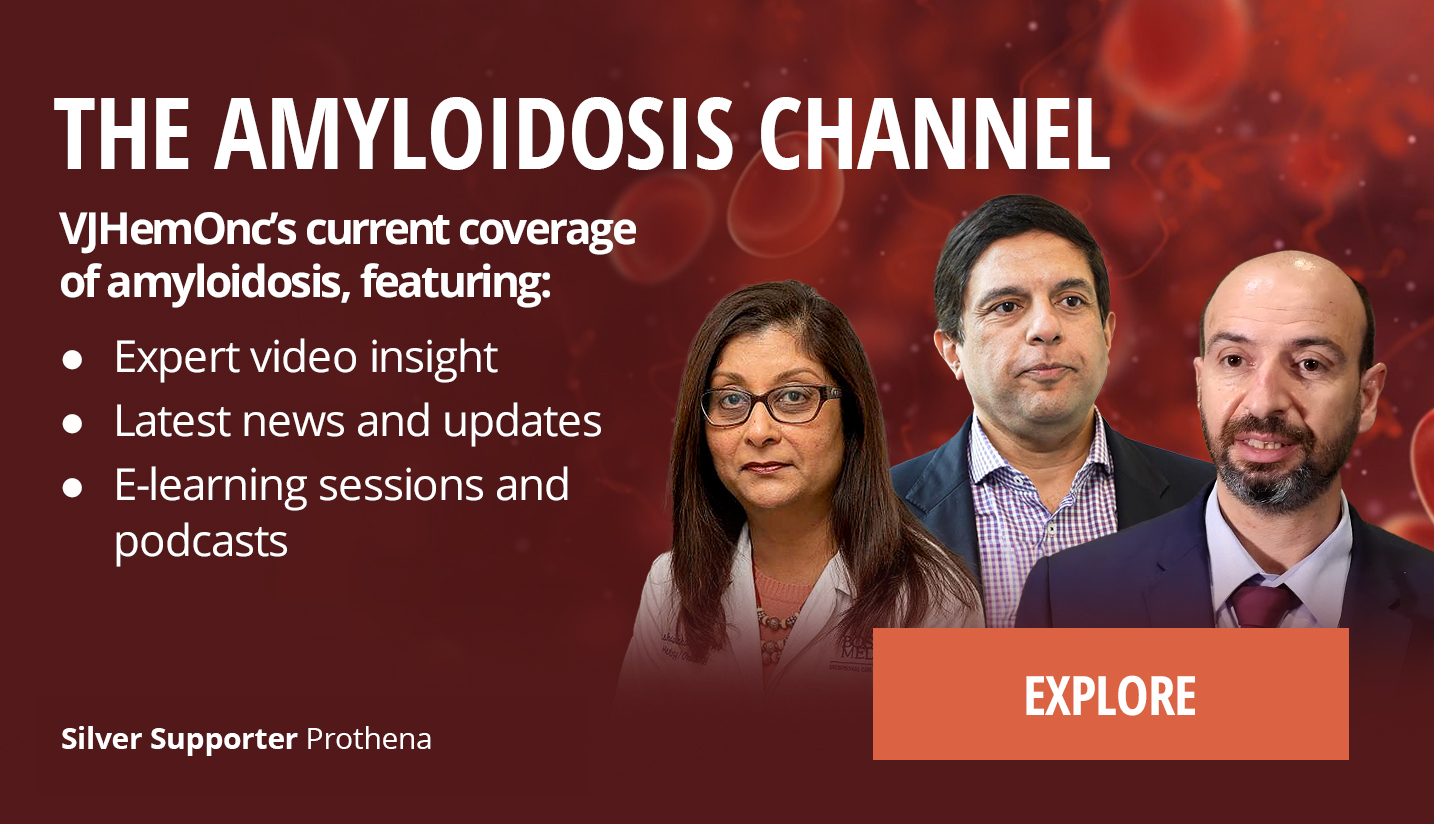I’m excited to share our experience with a novel BCMA targeting CAR T-cell construct called MDC-CAR-BCMA001, which we have already successfully used in patients with AL amyloidosis, heavily pretreated patients with amyloidosis and multiple myeloma. And MDC-CAR-BCMA001 is a second-generation CAR T-cell construct targeting BCMA, similar to cilta-cel and ide-cel...
I’m excited to share our experience with a novel BCMA targeting CAR T-cell construct called MDC-CAR-BCMA001, which we have already successfully used in patients with AL amyloidosis, heavily pretreated patients with amyloidosis and multiple myeloma. And MDC-CAR-BCMA001 is a second-generation CAR T-cell construct targeting BCMA, similar to cilta-cel and ide-cel. There are some key differences to it. So it uses CD28 as a co-stimulatory domain and has a uniquely high avidity, which allows use in low antigen-expressing diseases.
And BCMA has become a very attractive target for immunotherapies, but CAR T-cell therapy isn’t always an option, especially for patients with AL amyloidosis, since it’s not currently approved for them. So to address this gap, we pursued compassionate use of our in-house manufactured CAR T-cell product.
We treated six patients, three with AL amyloidosis, three with myeloma. Those patients were highly pretreated. They had triple refractory disease. They had severe vital organ impairment. And we observed exceedingly good responses – we’re very happy with them. Five out of six patients responded with four of them achieving a complete response. And all patients who achieved a CR also became MRD negative. And all responders are alive after a median follow-up time of 13 months. And four of them remain in sustained remission without needing further therapy.
And especially in AL amyloidosis, achieving a rapid and deep hematologic response is crucial for preserving organ function. And we could observe near total suppression of amyloidogenic serum-free light chains. And these rapid and deep hematologic responses translated into impressive organ responses. And in some patients, we could observe further improvement in organ function even one year after CAR T-cell treatment.
Our CAR T-cells expanded very robustly, and in some patients we could observe persistence for over a year after treatment. Most importantly, treatment was very well tolerated with mostly low-grade CRS and no neurotoxicity at all. And by optimizing supportive care, we were able to manage CRS without any irreversible toxicities, and this included earlier than usual use of tocilizumab and restrictive use of corticosteroids. Cytopenias and hypogammaglobulinemia were expected events, but infections, fortunately, were mostly low-grade and overall manageable.
So in conclusion, MDC-CAR-BCMA001 is a promising treatment option with striking efficacy even in highly pretreated patients with no other promising commercial treatment options left. And the mostly lower-grade CRS and absence of neurotoxicity make it a suitable construct for treating this very vulnerable cohort of patients. We are looking forward to the CARLOTTA001 trial by our colleagues from Dresden, which is currently enrolling patients to treat this construct with relapsed/refractory DLBCL and myeloma, very exciting. And we are going to launch a phase one trial called Clear-AL for the treatment of relapsed/refractory AL amyloidosis as early as in second line of treatment soon.
This transcript is AI-generated. While we strive for accuracy, please verify this copy with the video.














